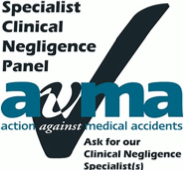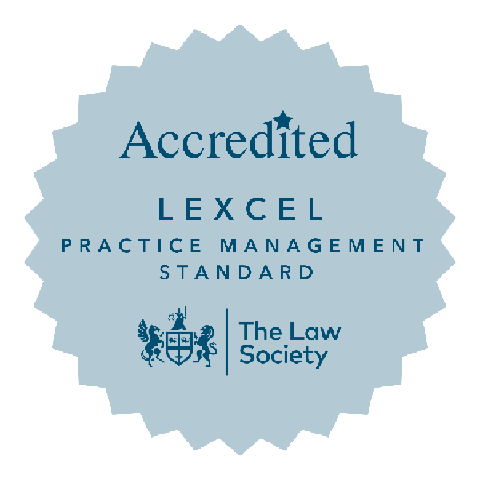FAQs
If you have any questions specifically in relation to your claim please get in touch, or you can view our most commonly received ones below.
What is medical negligence?
Medical negligence means that harm has been caused through medical treatment because the care you received was not up to the accepted standard. Medical negligence (sometimes called clinical negligence) can happen in a number of situations which include:
- when there are problems during labour, leading to a birth injury to the baby or an injury to the mother
- when a doctor fails to diagnose a condition - such as cancer - which then goes untreated
- when something goes wrong during an operation
- when the wrong medication or dosage is given
Who can I claim against?
A medical negligence claim can be made against a hospital, private clinic or individual medical professional. This includes GPs, hospital doctors, nurses, midwives, dentists, physiotherapists, psychologists, psychiatrists, osteopaths and opticians. If the alleged negligence was by someone working in an NHS hospital, the claim is made against the relevant NHS Hospital Trust.
What can making a medical negligence claim achieve?
Court proceedings are extremely costly, stressful and time consuming. Therefore, it is important to understand what we can and cannot achieve. We are lawyers and our role in helping you to bring a claim for medical negligence is to try to obtain financial compensation for the injury that has been suffered. Whilst we try to obtain an apology, this is not always possible, even if blame is admitted and the Defendants agree to pay you compensation.
A successful claim for medical negligence will not directly affect the ability of any doctor or nurse to continue to practise medicine. On the other hand, the very fact that we have investigated a potential claim will mean that the medical and administrative staff involved begin to ask themselves why their patient has found it necessary to consult a lawyer, and that often results in them making their own investigations, which can then lead to a direct improvement in the service that they then provide to other patients in the future.
If we investigate your claim, we can usually help you to understand what went wrong and why, even if we have to advise you that the circumstances are such that a claim can not be pursued.
How will my claim be investigated?
Once the arrangements for funding your claim have been finalised, you claim will be allocated to one of our specialist lawyers who will then work with you throughout the case. Your lawyer will meet with you to start preparing a detailed history of your medical treatment and the issues that you have suffered.
We will then gather all the information that is needed to prepare the evidence for your claim – including your medical records – and send them to an independent and experienced medical expert for their opinion. If they feel there is sufficient evidence, we can then proceed with your claim.
How long will my claim take?
It can take 12-18 months to investigate a medical negligence claim. Most cases are then settled but, if a claim goes all the way to Trial, it can take a number of years to reach its conclusion.
Will I have to go to court?
The vast majority of claims are settled without the need for a full Court hearing. However, some cases do end up in Court and, if this happens, we will make sure that you are fully prepared and know what to expect. We will guide you through the entire process and try to remove as much stress as possible.
How much will it cost me to make a claim if I’m not eligible for Legal Aid?
If you are not eligible for Legal Aid, we will offer you a Conditional Fee Agreement, also known as a ‘No Win No Fee’ Agreement. This means that you will not need to pay anything upfront, there are no hidden costs and you pay nothing if your claim is unsuccessful. We only get paid our fees if your claim succeeds.
Other solicitors may offer you a ‘No Win No Fee’ Agreement, but then ask you for money upfront or at different stages of your claim. They may ask you to pay for:
- an initial investigation to see whether or not they will be willing to take on your case
- medical examinations and reports
- opinions from experts
- expense
We will never ask you to pay these costs.
You will only need to pay us if your claim succeeds and this is paid out of your compensation. We will discuss with you what you can expect to pay. We also promise that we will aim for you to keep at least 75% of your compensation.
Am I eligible for Legal Aid?
Legal Aid is sometimes available for claims relating to brain injuries suffered by a child at or around the time of birth. Neither you nor the child will be held responsible for any fees or expenses and will not have to pay anything, even if the case is lost. Winning the case will see the child receive 100% of the compensation from the Defendant.
How much compensation can I expect to get?
The amount of compensation you will receive depends on the severity of the injury and the financial losses that the injury has caused or will cause in the future. Future financial costs and losses commonly include loss of earnings and costs of care. It can also include increased insurance costs, cancellation fees for cancelled holidays, cost of aid, equipment and travel to appointments. We will discuss this with you to ensure we include everything within your claim.
In cases where the patient has died, there will be two claims; one for the estate of the patient and one for any dependants. There is also a Statutory Bereavement Award paid to a spouse or the parents of unmarried children under 18 years of age.
Can you get me more compensation than other solicitors?
Because we are specialist medical negligence solicitors who only work in this area of law and only for claimants, we can often build a stronger case than other solicitors who may have less experience, especially when it comes to complex claims. This gives us particular expertise when setting out the value of a claim and negotiating a settlement. We are also prepared to go all the way to Trial if we feel it is necessary and we prepare all the claims we accept on that basis.
Solicitors who specialise in medical negligence claims are more familiar with similar cases and will therefore often be able to negotiate a better outcome.
Will I have to repay any welfare benefits if I win my case?
If you receive any welfare benefits because of your injury, you may have to repay some or all of them if your claim succeeds.
You will not have to pay back any money from the compensation for your pain, suffering, disability and injury. However, you may have to repay benefits that you receive for loss of mobility, loss of earnings or costs of care.
The Compensation Recovery Unit of the Department for Work and Pensions administers the scheme to recover welfare benefits. We will advise you fully as to how the scheme will affect your particular claim.
Who pays my compensation?
Individual doctors, including GPs, must have insurance or indemnity against claims for medical negligence. A successful claim against them means that their insurance company pays compensation to you.
Claims arising out of treatment or advice from any NHS employee are covered by NHS Resolution – formerly known as the NHS Litigation Authority (NHSLA).
In the private sector, hospitals, GP surgeries and clinics must arrange their own medical indemnity insurance.
What does settlement mean?
A settlement is an agreement reached between you and the Defendant which brings the claim to an end rather than it having to be decided by a Judge. It is negotiated between the parties’ solicitors. A settlement will result in you receiving your compensation more quickly, will remove the uncertainty of a Trial and will also reduce costs.
Under normal circumstances, the parties are entitled to agree to a settlement on whatever terms they choose. However, there are five circumstances where the approval of a Judge must also be obtained:
- if the claimant is under 18 years old at the date of the settlement
- if the claimant is unable to manage his or her own affairs because of a severe learning disability
- if all or part of the compensation is to be paid in the form of periodical payments rather than as a lump sum. This might be the case where the claim includes a substantial sum for anticipated future losses e.g. the cost of nursing care which might continue for the rest of the claimant’s life. Because of the difficulty in predicting life expectancy, a periodic payment award might be sensible
- if the claim relates to someone who has died and the award includes compensation for the loss of financial support and one or more of the deceased’s dependants are under 18 years of age, or the dependants cannot agree how to apportion the award
- if there is a recognised risk that, at some time in the future, the claimant might develop some significant deterioration in his or her physical or mental condition, the Court may give him or her the right to return to Court to obtain further compensation for that deterioration
Is there a time limit for making a claim?
Yes. A medical negligence claim must be made within three years of the injury being realised. There are a few exceptions to this. Children have until their 21st birthday, and there is no time limit for anyone who is mentally incapacitated.
If someone dies within the initial three-year period, the qualifying time starts again from the date they died.
In special circumstances, the Courts sometimes allow claims outside this time. If your medical accident happened longer than three years ago, we can advise you if your claim is likely to be considered.
Legal and Medical Terminology
Explanation of Legal Terms
Glossary of Medical Terms
Lexcel accredited medical negligence claims solicitors
We are proud to be a Lexcel-accredited practice. The accreditation is a mark of quality and comes directly from the Law Society.
A recent assessment described us as a “Centre of Excellence” and we continue to operate to the highest standards across all main areas of our field. These include client care, case management, financial management, structure and strategy, people management, risk management, information management and file management.




Industry Recognised
